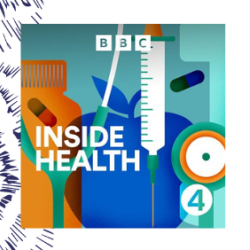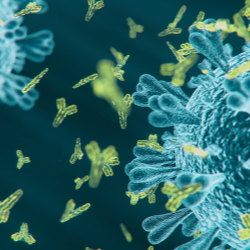Improvement of vaccine efficacy and toxicity in mice and humans
Dr. James Thaventhiran
Vaccination is at the core of preventative medicine and protects billions of people from disease worldwide. Our group aims to investigate when vaccines do or don’t work, why some groups are not as well protected by vaccination, and how mRNA vaccines can be optimised to improve efficacy and reduce toxicity.
With a focus on translational research in immunology, using mouse and human studies, our group explores four key areas of vaccination.
- Vaccine responses in people with severe obesity. Levels of severe obesity are increasing worldwide, and the excess adipose tissue associated with obesity can have a major impact on the immune system. Work on the SARS-CoV-2 vaccine ResPonse In Obesity (SCORPIO) study revealed that people with severe obesity experience accelerated waning of their immune responses to vaccination against SARS-CoV-2. This corresponded with an increased risk of morbidity and mortality from COVID-19 sooner after vaccination than individuals of normal weight. We are continuing to explore how and why the immune response in these individuals is perturbed using single cell RNA sequencing technologies.
- Vaccine responses in inherited immunodeficiency. Individuals with inherited immunodeficiencies have compromised immune systems are therefore often at increased risk from infectious disease. Despite this many individuals with inherited immunodeficiencies are able to respond to vaccination providing an invaluable insight as to the contribution of different components of the immune response to protection following vaccination. Understanding of how adaptive immunity is triggered by vaccination in these individuals allows the catering of vaccines and vaccine administration to these at-risk groups.
- mRNA vaccine responses. mRNA vaccines are a rapidly developing form of immunisation with potential not only in infectious disease but also cancer. As the response to the COVID-19 pandemic indicated, these vaccines have been proven to successfully protect against disease. As the uses of this technology expands, we aim to find ways to improve the efficacy of mRNA vaccines as well as developing methods for reducing the risks of off target affects and adverse events caused by mistranslation.
- Impact of checkpoint blockade on vaccine responses. Immune checkpoint blockade therapies are used to treat a number of diseases including some cancers and multiple sclerosis. These therapies act by preventing exhaustion of the immune system and increasing levels of immune activation. Despite this, we found that individuals receiving immune checkpoint blockade produced an attenuated response to vaccination against SARS-CoV-2 and identified age associated B cells as a biomarker for the success of vaccination in these groups.
Key publications
Fischer K, Lulla A, So TY, Pereyra-Gerber P, Raybould MIJ, Kohler TN, Yam-Puc JC, Kaminski TS, Hughes R, Pyeatt GL, Leiss-Mayer F, Brear P, Matheson NJ, Deane CM, Hyvönen M, Thaventhiran JED and Hollfelder F. Rapid discovery of monoclonal antibodies by microfluidics-enabled FACS of single pathogen-specific antibody-secreting cells. Nature Biotechnol; doi.org/10.1038/s41587-024-02346-5 (2024).
Takahashi M, So TY, Chamberlain-Evans V, Hughes R, Yam-Puc JC, Kania K, Ruhle M, Mann T, Schuijs MJ, Coupland P, Naisbitt D, Halim TYF, Lyons PA, Lio P, Roychoudhuri R, Okkenhaug K, Adams DJ, Smith LGC, Jodrell DI, Chapman MA and Thaventhiran JED. Intratumoral antigen signaling traps CD8+ T cells to confine exhaustion to the tumor site. Science Immunology; 9, 95, (2024).
Mulroney TE, Pöyry T, Yam-Puc JC, Rust M, Harvey RF, Kalmar L, Horner E, Booth L, Ferreira AP, Stoneley M, Sawarkar R, Mentzer AJ, Lilley KS, Smales CM, von der Haar T, Turtle L, Dunachie S, Klenerman P, Thaventhiran JED, Willis AE. N1-methylpseudouridylation of mRNA causes +1 ribosomal frameshifting. Nature; 625, 189-194 (2023).
Yam-Puc JC, Hosseini Z, Horner EC, Pereyra-Gerber P, Beristain-Covarrubias N, Hughes R, Lulla A, Rust M, Boston R, Ali M, Fischer K, Simmons-Rossello E, O'Reilly MJ, Robson H, Booth LH, Kahanawita L, Correa-Noquera A, Favara D, Ceron-Gutierrez L, Keller B, Craxton A, Anderson GSF, Sun X, Elmer A, Saunders C, Bermperi A, Jose S, Kingston N, Mulroney TE, Piñon LPG, CITIID-NIHR COVID-19 BioResource Collaboration, Chapman MA, Grigoriadou S, MacFarlane M, Willis AE, Patil KR, Spencer S, Staples E, Warnatz K, Buckland MS, Hollfelder F, Hyvönen M, Döffinger R, Parkinson C, Lear S, Matheson NJ and Thaventhiran JED. Age-associated B cells predict impaired humoral immunity after COVID-19 vaccination in patients receiving immune checkpoint blockade. Nature Comms; 14, 3292 (2023).
van der Klaauw AA, Horner EC, Pereyra-Gerber P, Agrawal U, Foster WS, Spencer S, Vergese B, Smith M, Henning E, Ramsay ID, Smith JA, Guillame SM, Sharpe HJ, May IM, Thompson S, Innocentin S, Booth LH, Robertson C, McCowan C, Kerr S, Mulroney TE, O'Reilly MJ, Gurugama T, Gurugama L, Rust MA, Ferreira A, Ebrahimi S, Ceron-Gutierrez L, Scotucci J, Kronsteiner B, Dunachie SJ, Klenerman P, PITCH Consortium, Park AJ, Rubino F, Lamikanra AA, Stark H, Kingston N, Estcourt L, Harvala H, Roberts DJ, Döffinger R, Linterman MA, Matheson NJ, Sheikh A, Farooqi IS and Thaventhiran JED. Accelerated waning of the humoral response to COVID-19 vaccines in obesity. Nature Med; 29, 1146–1154 (2023).
Thaventhiran JED, Allen HL, Burren OS, Rae W, Greene D, Staples E, Zhang Z, Farmery JHR, Simeoni I, Rivers E, Maimaris J, Penkett CJ, Stephens J, Deevi SVV, Sanchis-Juan A, Gleadall NS, Thomas MJ, Sargur RB, Gordins P, Baxendale HE, Brown M, Tuijnenburg P, Worth A, Hanson S, Linger RJ, Buckland MS, Rayner-Matthews PJ, GIlmour KC, Samarhitean C, Seneviratne SL, Sansom DM, Lynch AG, Megy K, Ellinghaus E, Ellinghaus D, Jorgensen SF, Karlsen TH, Stirrups KE, Cutler AJ, Kumararatne DS, Chandra A, Edgar JDM, Herwadkar A, Cooper N, Grigoriadou S, Huissoon AP, Goddard S, Jolles S, Schuetz C, Boschann F, Primary Immunodeficiency Consortium for the NIHR BioResource, Lyons PA, Hurles ME, Savic S, Burns SO, Kuijpers TW, Turro E, Ouwehand WH, Thrasher AJ and Smith KGC. Whole-genome sequencing of a sporadic primary immunodeficiency cohort. Nature; 583, 90–95 (2020).
Spencer S, Köstel Bal S, Egner W, Allen HL, Raza SI, Ma CA, Gürel M, Zhang Y, Sun G, Sabroe RA, Greene D, Rae W, Shahin T, Kania K, Ardy RC, Thian M, Staples E, Pecchia-Bekkum A, Worrall WPM, Stephens J, Brown M, Tuna S, York M, Shackley F, Kerrin D, Sargur R, Condliffe A, Tipu HN, Kuehn HS, Rosenzweig SD, Turro E, Tavaré S, Thrasher AJ, Jodrell DI, Smith KGC, Boztug K, Milner JD and Thaventhiran JED. Loss of the interleukin-6 receptor causes immunodeficiency, atopy, and abnormal inflammatory responses. J Exp Med; 216 (9): 1986–1998, (2019).
















